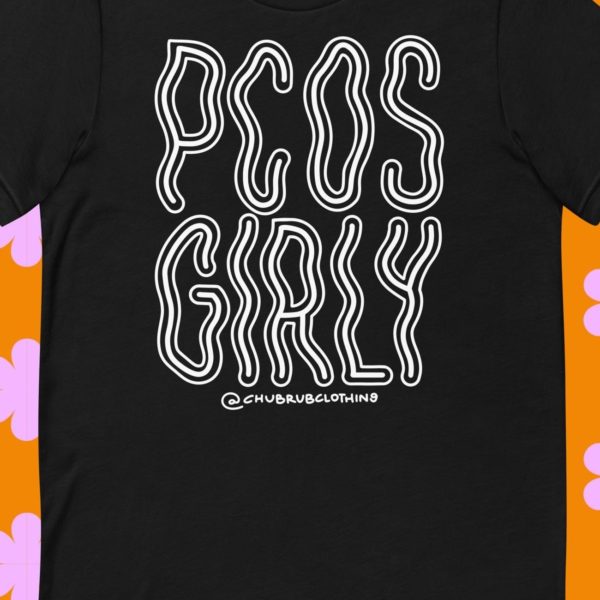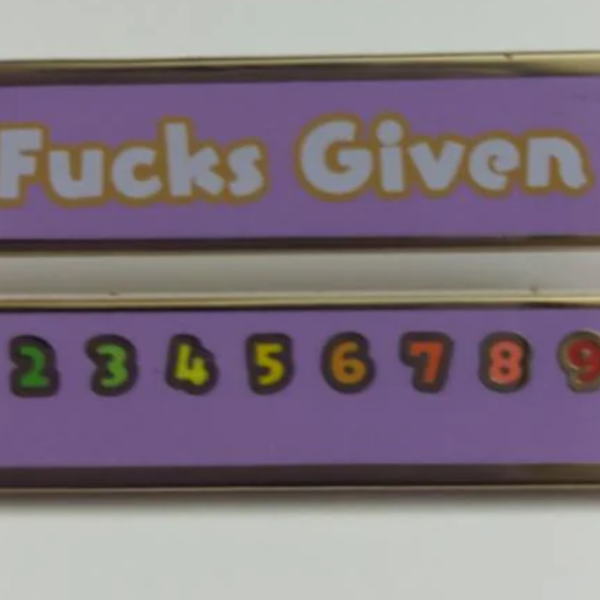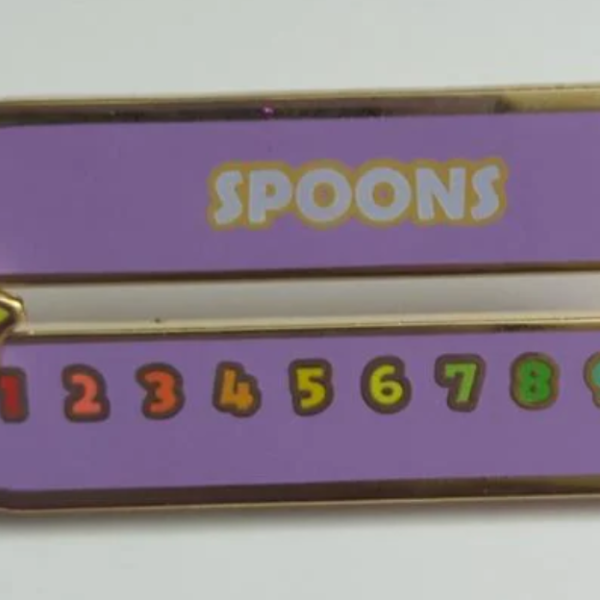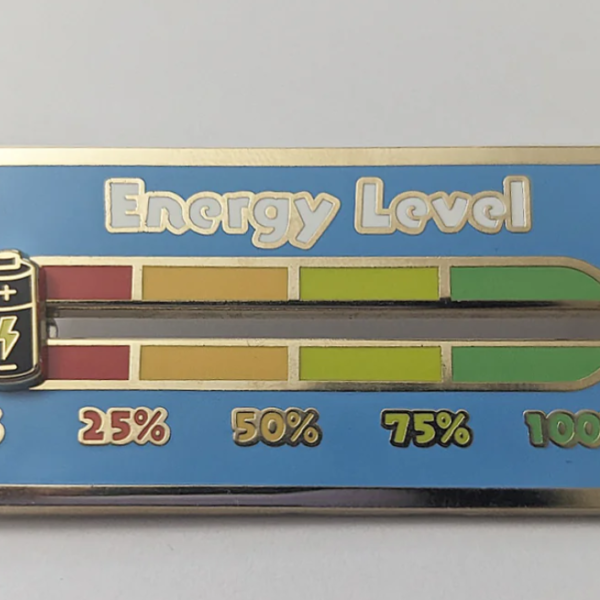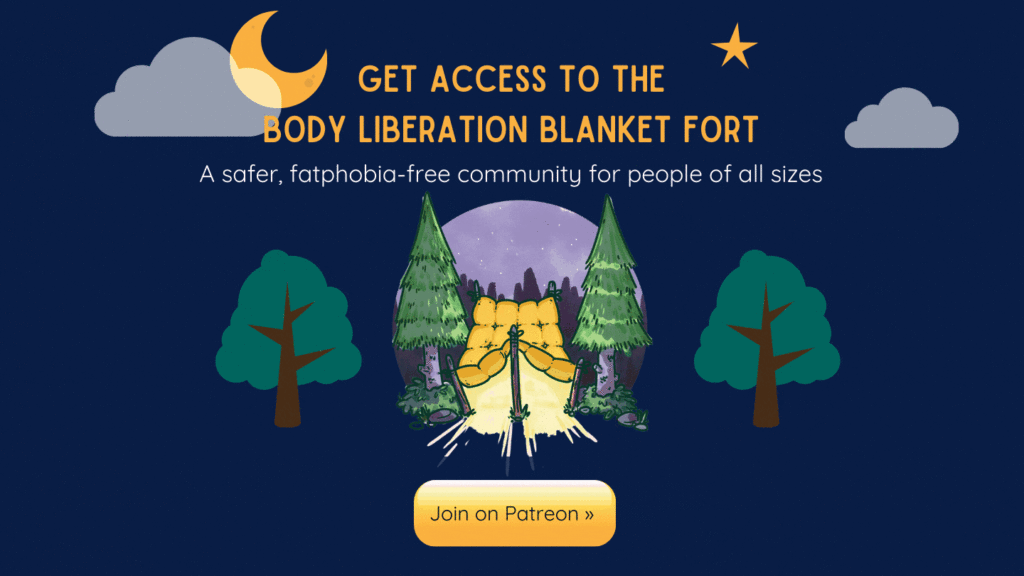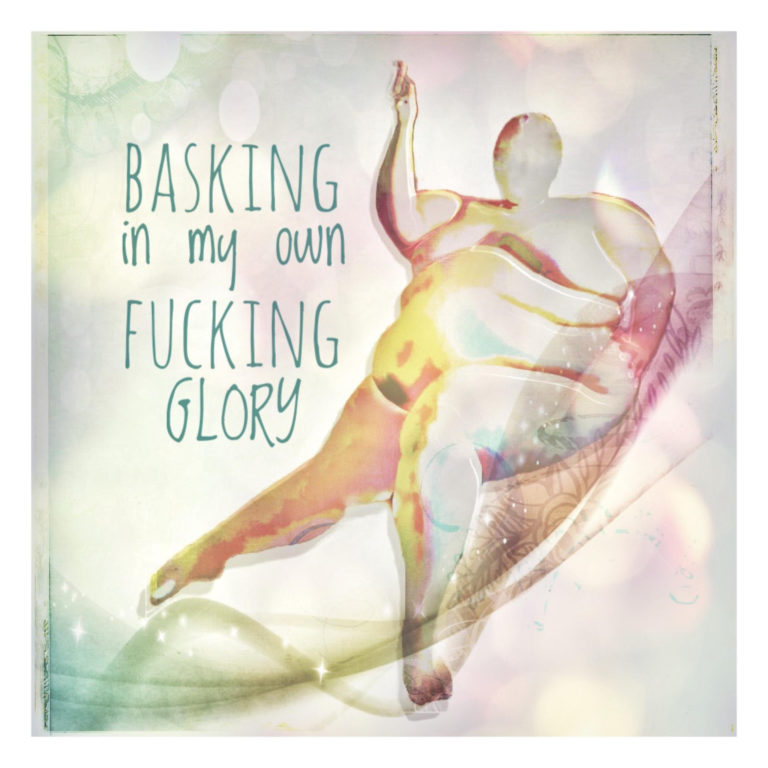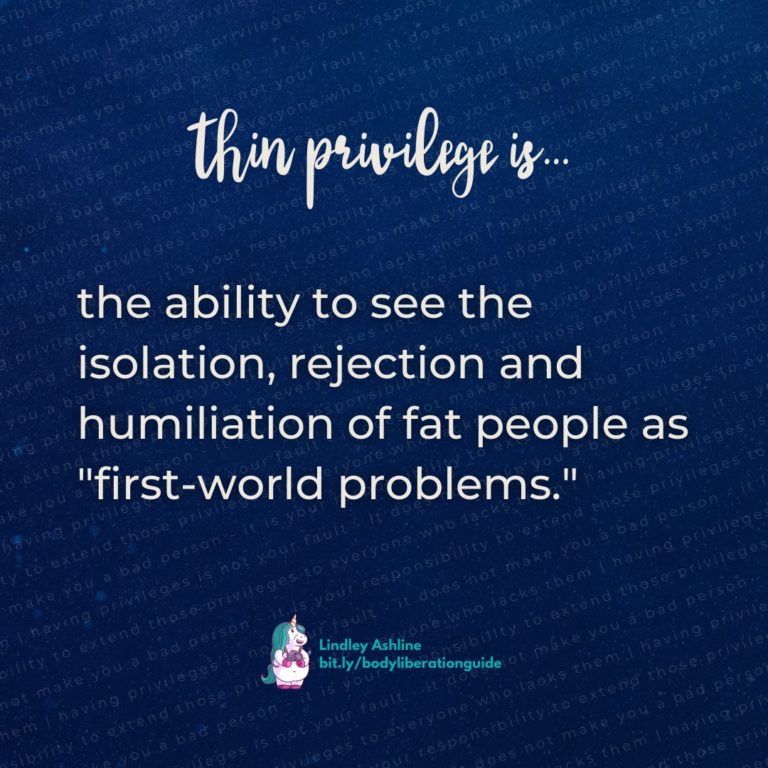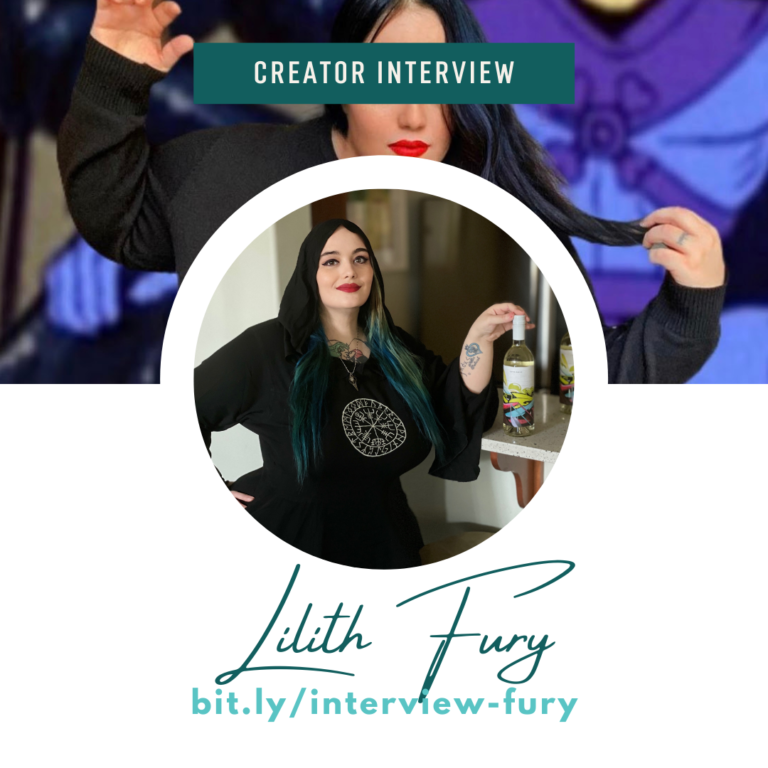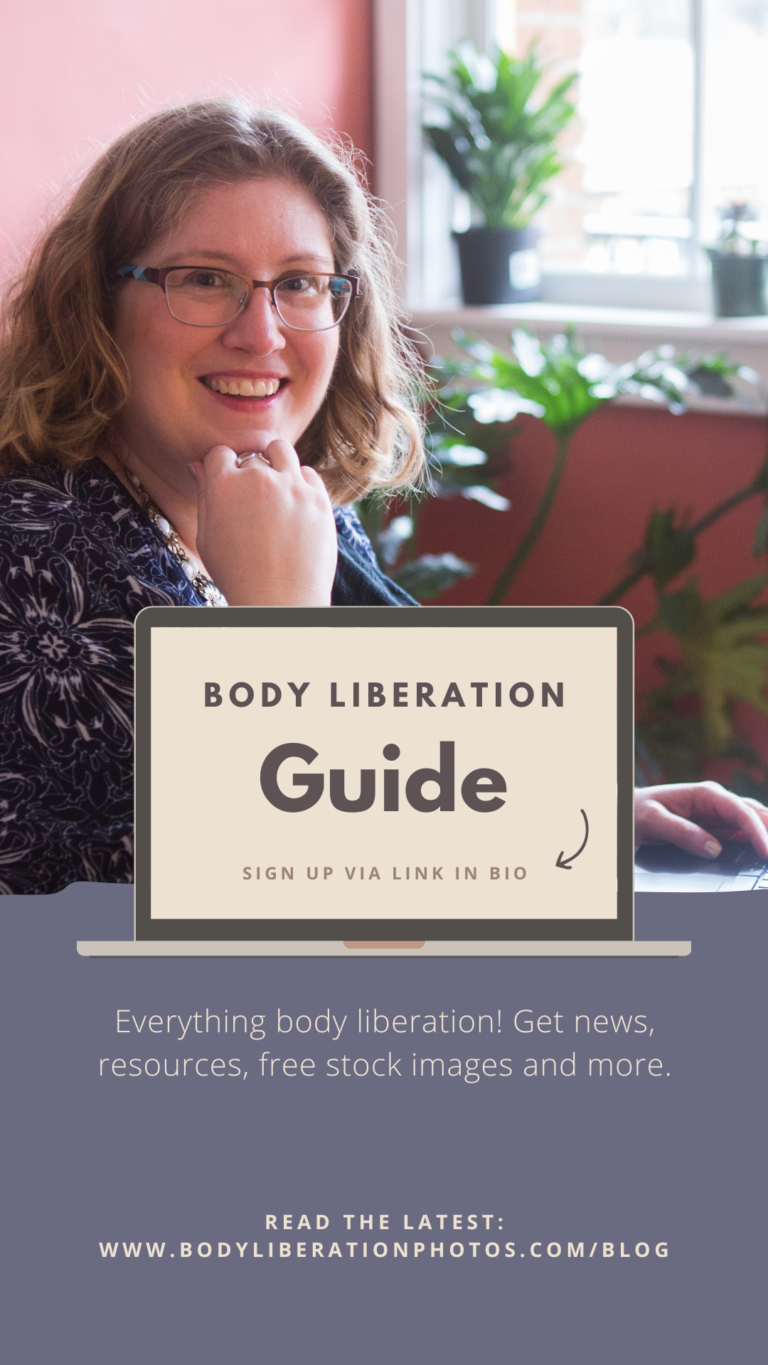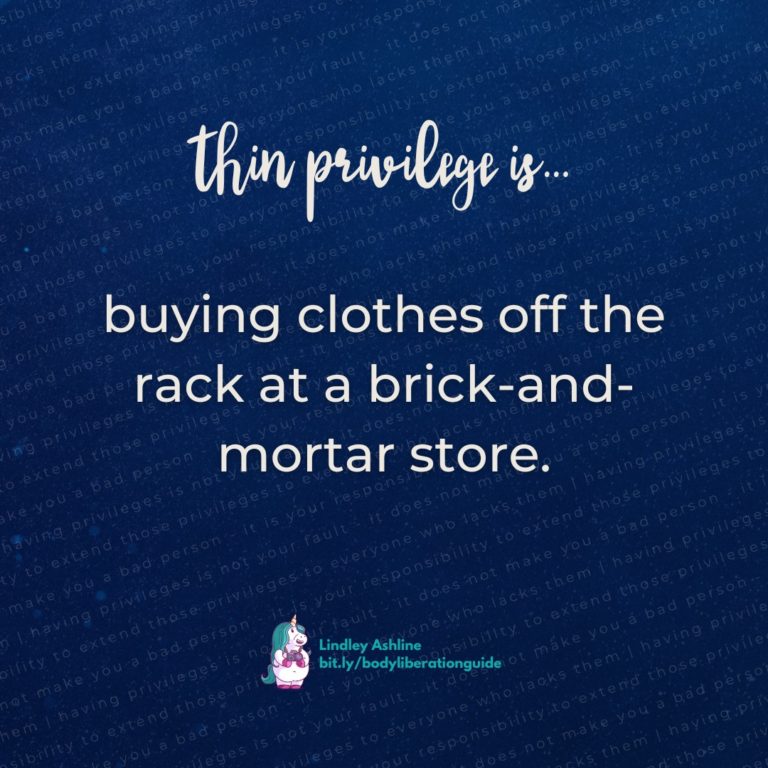Listen: Eating Support & Health at Every Size® Chat with Chelsea Levy Nutrition
I went way out of my comfort zone with Chelsea of Chelsea Levy Nutrition and ate on camera for a special Instagram live eating support session.
It is so important to normalize fat folks eating in public. Too often, we get stares, comments or open stigma for simply doing what humans need to do: eat.
During our time together, Chelsea and I chatted about:
- Moving from nature photography to photographing people
- How observing nature made me more body accepting in my work
- Fat invisibility and hypervisibility
- TV doctors who look like models (because they are models)
- My behind-the-scenes activism in HAES healthcare provider groups
Episode Transcript
Chelsea: Hello, welcome to Meal Support Chelsea with Chelsea Levy Nutrition, special guests joining soon. And I’m here with Luna who snooze in. How are you out there? If you are going to have a meal or snack, please get seated and comfortable and get started. Don’t let us hold you up on starting that nourishment. If you just joined, welcome. Starting a live meal support leader in the day, which is unusual for me, but I have a special guest on the west coast. It’s 3:00 PM Eastern standard time in New York and on the west coast, it’s noon. Really looking forward to our special guest joining momentarily. Yeah, today is Wednesday, and it’s wild how time is flying by. How was everybody’s Halloween? How are you doing? If you have a meal or a snack and you need support, please feel free to share in the comments and I’ll do my best to support you.
I’m having a snack. I had lunch already, but I am having a Ronnybrook mango flavored yogurt drink, so good. Highly recommended if you like… hi friend; if you like mango [unclear01:29], Ronnybrook mango drink really hits the spot. What are you bringing today? Is it lunchtime for you? Is it snack time? Is it breakfast? What are you…? You like miss those yogurt drinks? Yeah, Ronnybrook is a good one. But there’s – Siggi’s does a really good line of yogurt drinks that I’m a fan of. I haven’t tried any of them. Amy’s telling us it’s snack time. Yeah, what are you having and where are you tuning in from? Hello? Hello. Hi, Lindley. Can you hear and see me okay?
Lindley: I can.
Chelsea: Thank you so much for joining.
Lindley: Thanks for having me.
Chelsea: I’m so excited that your hair is still pick. I wasn’t sure if the picture that I pulled was current or not, so I love that it is, it’s even more fun.
Lindley: It’s not that I’ve redone it since.
New at Body Liberation Stock
Chelsea: Got it. Full circle, it just happened that way, serendipitously. Well, I will introduce myself and I’ll let you introduce yourself and then just give a little spiel to everyone out there joining. I see some new folks names just the different timing might sort of like allow for people to join. So if you’re just joined, welcome. Yeah, grab a meal or a snack. Just want to introduce myself. I’m Chelsea from Chelsea Levy Nutrition in New York City. It is 3:00 PM Eastern Standard Time. I’m here with my dog Luna and my pronouns are she, her, hers, drinking a mango yogurt drink from Ronnybrook, I’m a big fan of. And I’m here with Lindley who will do the honors of introducing themselves.
Lindley: Hi, I’m Lindley. I use she/her pronouns and I am a photographer and body liberation activist. I’m in Seattle, so it’s noon for me so it’s the perfect time for lunch. Yeah, I’m joining today. It was really exciting when Chelsea invited me because I’m really into the idea of normalizing people in very fat bodies. And you always see me from the shoulders up, but if you go to my Instagram account at Body Liberation with Lindley, you’ll be able to see more of my full body. And so, normalizing fat folks even in public without shame is really important. So today, because it is lunchtime for me, I have leftovers.
Chelsea: Yeah, I love leftovers.
Lindley: [Unclear04:09]. I have sort of a medley going on here. Oh, thank you. Somebody just said, look, my newsletter. I have two half meals going on today. I’ve got some Tikkun and Portelli and some Korean beef ball. I’ve also got a little bit of leftover salad so you might hear me crunching to you. And then, because I’m not a morning person and noon is still relatively early for me, I’ve got coffee, corporate coffee and water.
Chelsea: Awesome.
Lindley: I have a bunch of different stuff today.
Chelsea: Amy, if you go up to the top, you can see it’s Body Liberation with Lindley. I don’t know if you can see it at the top, but we’ll also type it in the comments so that you have it – Body Liberation with Lindley, correct?
Lindley: I think so.
Chelsea: I know, I’m like, I put my name. What day is it? Let me know if that’s right.
Lindley: Oh, yeah, that’s it. Oh no, it’s L I N D L E Y, sorry.
Chelsea: One more time. Okay, Body Liberation with Lindley.
Lindley: I’m just Southern, so I don’t pronounce the D, but everyone else can choose to or not to, I don’t care.
Chelsea: I’m moving slow. So everybody out there, if you’re here working at an eating disorder recovery, chronic dieting, and you need support, feel free to share in the comments and I’ll do my best to support you. It is no replacement for professional medical care, but it’s certainly a form of a resource to support you and your goals of and harm reduction. This is a health at every size space, two folks, fat folks with experience here, sort of eating in front of you and normalizing it. And I hope that that is helpful. If you have any questions for myself or Lindley, please go ahead and share them and we’ll do our best to answer them. Brianna says, “Will you take questions?” Absolutely. Amy says, “Holidays are coming up. It’s a hard time with food?” It really is. Thank you for naming that.
How are some ways Amy, that you cope through the holidays with food or around that. And Brianna, please feel free to share your questions. Anyone out there, if you’re curious about Lindley’s work as our special guest, please ask questions and we’ll chat and then stop and look at the comments and the answer them. Welcome. Welcome. I’m so excited that you’re here. I don’t know… well, we don’t know each other well, so I’m just sharing some things. I am a career changer. So before I became a dietician and intuitive eating counselor, working with eating disorders, I worked with photography. I majored in photography in undergrad, and then I worked in fine art photography, and eventually into art production. So I produced advertisements, I would hire photographers for photo shoots for ads. So, I thought it’d be cool for us to chat because it’s like these intersections of mediums and art and body liberation all in one space.
Lindley: Yeah. You have way more credentials than I do.
Chelsea: I mean, at the time I didn’t photograph like body liberation. That wasn’t even part of my vernacular at the time. I was taking pictures of my family and I had a Hasselblad that I recently sold, that was the time. But yeah, it’s cool to connect with somebody else who’s into photography.
Lindley: Yeah, yeah, yeah. I’m totally, well, not completely self-taught, but I don’t have any like formal, I don’t have a photography degree. When I first picked up a camera, I was five, I was at the zoo and somewhere, somewhere on my hard drive is my very first photograph. And it was of the railing at the zoo. Like it’s close up because apparently I wasn’t pointed at where I thought it was pointing because I was five. It’s just this brown square brown square of the metal railing.
Chelsea: But you loved like collecting these moments.
New in the Body Love Shop
Lindley: Yeah, and just seen, you know, I think a lot of art photography is really based on bringing a vision to life and your interpretation of the world. And my focus has – pun, not intended, has generally been on capturing the world as it is, if that makes sense. So what I was doing, I’ve done nature photography for a very long time. And in nature photography, it was less about like creating a scene and capturing what was already there and the magic of what I was already seeing. And so that lends itself very well to this approach of photographing people as they are. When I started photographing people five or six years ago, it was like, oh, people are so cool. Like their bodies are so interesting anyway; I don’t need to change them for it to be worth capturing that moment in that body as it exist.
Chelsea: I love that, going from that still life into people. And yeah, I want to ask you more about that, but really quickly I just want to answer Brianna’s question. She says, “Even though I’ve been recovered for three years, I still struggle with the need to ‘eat clean’ but my body actually doesn’t feel good if I don’t have some ‘junk food'” and Brianna says, “Why is this and how do I work on accepting it?” Then Amy says the same thing Brianna, I struggled with the need to eat clean. Yeah, so let’s unpack that for a minute everybody. Clean eating is a construct, a social construct in diet culture. And food being clean is really about maybe cooking it to the right temperature so it’s safe from bacteria and washing your food. So these are sort of ideas that maybe we need to dismantle and unpack.
And like you said here, like, you don’t actually feel good unless you’re eating junk food. And I wonder what those foods are. Like, what are the foods that are clean and what are the junk? And if we took them out of those labels and named them into a list of the foods that do make our bodies feel good and then the foods that don’t, which is very different for everybody. And if we didn’t compare or put them in these categories, we might have a better handle on navigating like the self-care and the harm reduction of what feels good in our body. And so, I invite you to make a list of foods that make your body feel good and try to honor eating those. And if there is a struggle or a [unclear11:40], then you can work towards eating more of those things, ideally with your clinician. So that’s my take on that, I hope that’s helpful.
Chronically coloring says, “Brianna, for me, it’s partially the eating disorder and partially that our society is constantly making us think clean is good and it lingers. It’s so hard. I work on it by purposely having those other foods.” Yeah, it’s like really tied into also purity culture and religion. And there’s just so much to unpack. So, I really hope that we can name that all foods really do fit and there is no good or bad, it’s what works for your body, which is individual, and in the life cycle, our bodies needs change. And so, in your own life, there’s going to be foods that feel good at a certain time and then foods that don’t feel good. So, keep staying curious with a neutral sort of lens.
Lindley: I want to note too that when we think about things that are clean and things that are dirty, this is tied very closely to racism. And there’s an amazing book called Fearing the Black Body. It’s kind of academic. I am not an academic and I’m not a doctor; it took me a couple of tries to work my way through, but it was well worth it because it traces back the way we think about race and bodies. And this is very relevant to weight and it’s very relevant to food. Because for six or 700 years now, we have associated – and this was a very deliberate strategy that basically rich white men in Europe developed as a way to position white people as superior. White skin became deliberately associated with cleanliness and dark skin became associated with dirtiness. And you can look around right now. You know, if you’re in the US, look at us politics right now and look at recently in the US right now, and you can see how that is reflected; there are very obvious examples of this. So when we talk about clean eating and clean foods, that word is really closely tied with racism.
And look at this, those that are considered clean, there are foods that are generally associated with whiteness and generally associated with white people, food. Ah, yeah, I have not gotten to belly of the beast yet, but I’m looking forward to reading it because I suspect I’m going to learn a lot more about this from that.
Chelsea: I think Kayden just mentioned here, I’m also looking forward to reading ‘Belly Of The Beast: The politics of anti-fat newness as anti-blackness’. It’s a really great entry point. Da’Shaun… it’s a quicker read. It feels less like academic and they have a lot more intersections to talk about; they’re fat, they’re non-binary, they’re identifying masculine. And I’m trying to think, well they’re BiPAP. So you have all these intersections; there’s a lot of great notations of like where the history comes from and does refer to the book that Lindley was just talking about that it was a little bit more of a deeper read and I highly recommend. And you have such a great point Lindley, but really it is rooted in racism and it is so oppressive. And really like, if that helps you sort of motivate to unpack like where this comes from, like what you’ve internalized, I hope so. It’s a great point. Thanks Lindley.
Lindley: Yeah, it was sort of bringing that in since because Fearing The Black Body was a huge revelation for me. It was a huge revelation for me because I knew that fatness was tied to race, but I didn’t know how. And I didn’t realize how pervasive and how deliberate all of this construct, like you said, it’s a social contract has been. And then when you know that foundation, then when you see things pop up like clean eating, which has just popped up in like the last 10 years; you start recognizing, oh, that’s what this is about. There are people making bank off of me feeling bad about what I’m eating, and it also reinforces these structures of race and power. And these are all deliberately constructed. That’s not an accident. It’s not coincidentally.
Chelsea: It isn’t. That’s a great point. Thank you, Lindley. I’m curious – to circle back, a couple of people here love your hair. Just want to name that. Brianna and Chronically Coloring, they love your hair. I love your hair too. It’s awesome.
Lindley: This year was the first time that I have ever dyed my hair. My natural color at this point – I’m 41, and it used to be like that white blonde when I was a kid. And it’s now a very dark water, very light brown. You can see the natural color as it grows out. And I was always afraid to dye my hair because I don’t know. I was just fear of change, honestly, fear of the maintenance because cold showers are really not my jam. But also, a lot of fear around being seen because fat folks, we live in this weird either we’re hyper-visible or we’re invisible, depending on what’s going on around us, and like I didn’t want to draw more attention to myself.
But I found myself in this situation, I run my own business. I do have a part-time corporate gig that I do, and they don’t care what I do with my hair. I’m very lucky to be in that situation where I’m not going to kill my career because I have bright hair. And so I said, you know what, this is the time to go for it. And it was really weird for about a week. I kept touching it in my peripheral vision and going, whoa, what’s this? Now this is the third time I’ve touched up and I really love it.
Chelsea: That’s awesome, it’s a beautiful color.
Lindley: Thank you.
Chelsea: And you make a great point. We as fat folks, we’re either invisible or we’re sort of under a microscope, and it can be really uncomfortable to have to like decide where I’m landing if that even feels like a space that I can choose. Brianna says wellness culture drives me insane. I needed medication for a heart issue, but had to try all these lifestyle changes first, and then ended up dangerous that the medical community made me wait. Yes, wellness culture can be really, really intense. Thank you for sharing, Brianna. If you just joined, welcome. I want to recommend getting started on a meal or snack, this is Meal Support and we’re chatting. So yeah, if you have anything to share, feel free and we’ll keep going along. Chronically Coloring says, “Yeah, I think I’ve held back from dyeing my hair because of the fear of people looking.” And Amy says, “I’m working Thanksgiving. I didn’t try to take it off. Not sure if avoiding food or avoiding something, I’m working instead.” Yeah, exploring that dichotomy of like being with family over the holidays and eating or working. It can be a challenging decision to go into a family dynamic, whether there’s an eating disorder or not, so I want to name that. Chronically Coloring says, “Brianna, that’s very scary. I’m so sorry, you were put through that.” See how supportive this community is. I really love it.
Lindley: Yeah. We all deserve better. We all deserve good care that isn’t dependent on the current size of our bodies.
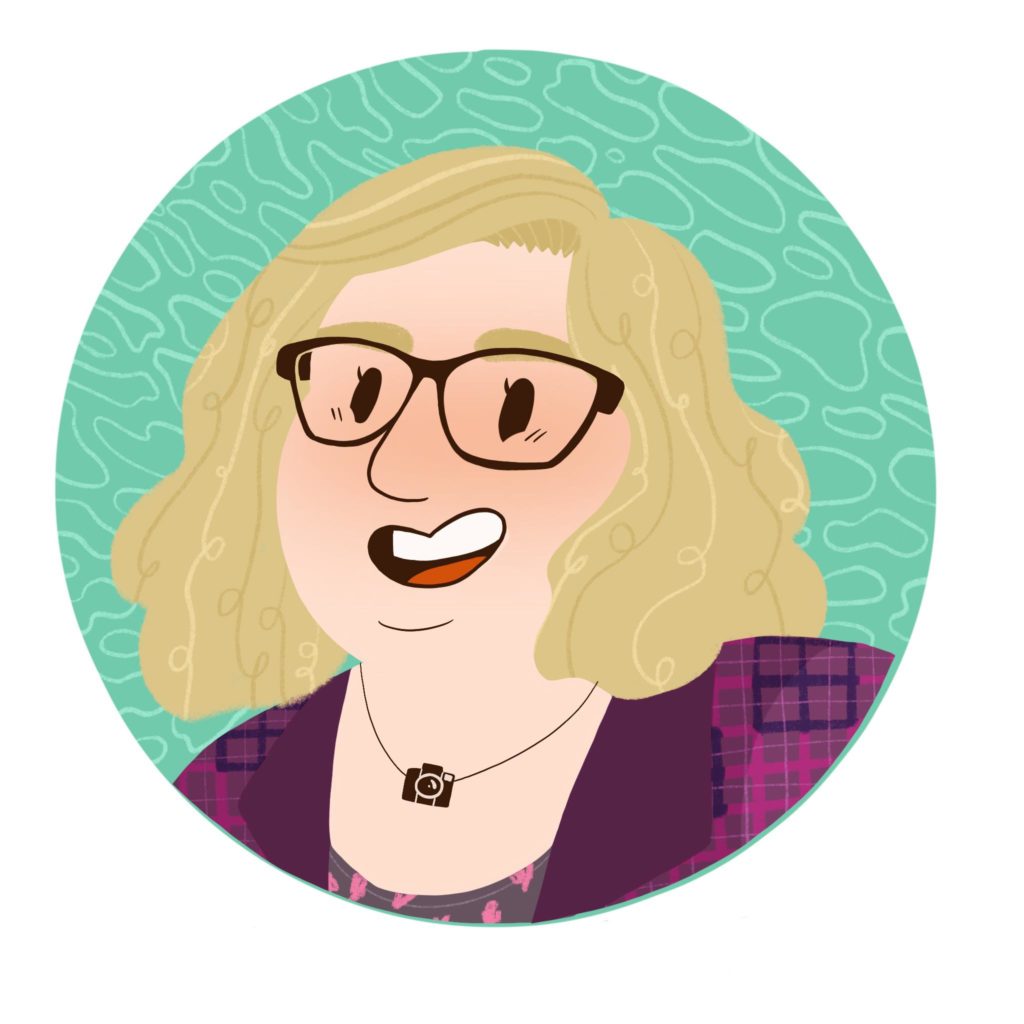
Every Monday, I send out my Body Liberation Guide, a thoughtful email jam-packed with resources on body liberation, weight stigma, body image and more. And it’s free. Let’s change the world together. Subscribe »
Chelsea: Living In This Queer Body is here, welcome. Yes, to Meal Support. I’m glad this space exists. Thank you. Yes, I’m typically here on Wednesdays at 1:00 PM Eastern standard time, but sometimes I change that and I love that because it’s really mixed up who’s showing up today, so I’ll have to like consider that in the future. If you just joined, please get started on your meal or snack and join in. Welcome. Welcome. So Lindley, you’re running your own business, that’s awesome. What is your business offering right now? What are you guys doing?
Lindley: So I actually, I have my fingers on a lot of different pies because I have a really short attention span, so it works out really well. I’m primarily a photographer. I do people who are in portrait sessions, small business sessions, here outside Seattle, Washington. I also sell stock photography, and that’s really the part of my business that I’m focusing on right now, because it’s such a powerful thing. If you’re not familiar with stock photography or stock images, they’re the images that you see that are used in magazines and advertising and social media and on websites, because most companies don’t have the resources to just hire a photographer every time they need a photo. And so, there are stock photography websites, Getty, Istock, Dreamstime, there are all these big stock pretty websites where you can just go buy a photo, or the free ones like Unsplash. And the thing is that those pictures, whether the illustrations or photos generally just depict one type of body. If you’ve ever seen a photo on a billboard with a doctor who just weirdly looks like a 23 year old model; it’s because they’re a 23 year old model. 23 year old could not be a doctor somehow. But these are people who are hired to be in these images, which means the only one tiny, but generally then white folks get represented. So, my work is a total alternative that I give people. I’m photographing people who primarily people who are in fat bodies, and also LGBT folks, and people of color and so on, that’s a real alternative. So companies and small business owners have a way to depict people like me who are their customers in their [unclear21:51]. And beyond that, I also have a web shop called the Body Love Shop. And let’s see, I do health at every size consulting, equity consulting, equity readings, and just a lot of different things. And it’s so cool to be able to do all this different work, but it’s all sort of based in body liberation and fat activism. And everything I do is at bodyliberationphotos.com, so you can find all the shop and the stock photos and my client photography, and all that stuff is in one place.
Chelsea: Yeah, that’s awesome that you’re doing all this work. It’s very social justice forward and it’s bringing to light your own lived experience and body into the forefront for more people to have the visibility to see that diversity, which is so incredibly important. I remember – so I used to be an art buyer, so one of my initial jobs was to buy stock photography for ads. And I would get this like checkbox, like we need more diversity or we need more of these pictures, and a lot of limitations on that stuff existing. I’m happy to see that there are more photographs being taken and put out into the world that have that diversity in every lens that we could possibly show it up in – so important.
Lindley: I came out of a corporate marketing career before I started this business and yeah, and I was always doing stock photos. And often there were very specific like industry specific photos, like, I don’t know, a federal elevator construction manager, looking at a construction site or anything like that kind of thing. It wasn’t very specific. And it was always like the thin white dude in the hard hat. [Unclear23:48] would be like a thin Hispanic man or a thin white man, but it was always these very normative photos, and there just weren’t options.
Chelsea: No. Chronically Coloring says, I like how there are so many models looking doctors on all the TV shows.
Lindley: Yeah, yeah, yeah. And we see that kind of body represented. I actually didn’t pursue a photography career for a number of years when I could have because I’ve never seen it, and this is changing. This is changing, which is awesome, but I’d never seen a fat photographer. I didn’t think anybody would hire a photographer, like who is going to want to work with me? And the answer is lots of people because I’m representing people who don’t get represented otherwise. But I wasn’t sure that a fat person could be a professional photographer because I’ve never seen one.
Chelsea: Yeah, I felt the same way about becoming a dietician, like I didn’t see any, in my classroom anywhere. It’s a minority so it’s challenging. Amy says, “Bye everyone, I have to get ready for my dietician appointment.” Bye Amy, hope you have a good appointment. Let’s see, Chronically Coloring says, in Chelsea’s past life as an art person – laughing. Yes. Brianna says, “My hair is purple on the ends. It’s really fun. And a lot of the LGBTQ community has colored hair. It makes me feel more myself. I’m glad I did it.” That’s awesome.
Lindley: Oh, that’s great.
Chelsea: That is badass like Chronically Coloring says. If you just joined, welcome. “Chelsea, we need you in this field.” Thank you. Yeah, I’m curious about, Lindley, like when did you find Hayes and like, how did you bring that into your life and into your work?
Lindley: Oh, it was a little bit before I started my own business. I had been in the fat activism and the fat acceptance community pre-body positivity, body positivity is an offshoot of fat acceptance.
Chelsea: Yes it is.
Lindley: And I have a whole monologue there; it’s probably on my Instagram somewhere if you want to hear that. You don’t need me to talk for half an hour about body positivity, appropriated fat activism. But yeah, I was sort of in fat activism in the older school, like live journal days when it was all [unclear26:29]. So I was following people who sees health at every size aligned. And I sort of just gradually became familiar with that through hearing other people talk about it. Oh, photo bomb. Hi, is that Luna?
Chelsea: This is Luna.
Lindley: You are the cutest. Oh my gosh.
Chelsea: She’s really cute.
Lindley: I’d introduced my cat, Blue, but she’s asleep and she will be very uncooperative if I pick her up in her sleep. But yeah, I just I just sort of gradually became familiar with it through listening to other fat folks talking about it and then picked up the original Health at Everysized book, read one chapter and bounced off of it because it was so academic.
Chelsea: Yeah. Have you read Body Respect?
Lindley: Yeah, Body Respect was a much easier read for a non-academic and the original Intuitive Eating book, which has since had some really great updates, I understand. And Body Respect, and really started digging in, again, to blogs and group discussions. And I do a lot of my learning by lurking, honestly, so just wanting other people to discuss things.
Chelsea: Yeah. Well, you are a voyeur as a photographer and in many ways, right. I don’t know. I can say that as a photographer too. I’m always looking.
Lindley: Yeah, because it’s our job to watch encounter.
Chelsea: Yeah. Like I have a gaze, I have the decisive moment and it might be in a photograph or it might be in how I respond to a comment or narrative. Chronically Coloring says, “Yep, Molly Robbins at Molly in Progress, just posted a whole thing about how it all changed.” That’s good. Chronically coloring is referring to what you were talking about before Lindley about how the body positivity movement is a co-opted space from body liberation, ultimately, which most people here know, but some might not know. You can learn more on Lindley’s page, and I’m sure that will both continually be reminding the Hayes community that’s about that shift. Something that I’m reminded of, like a potential client contacted me asking about like, how do I find the right fit for working with binge eating disorder? You know, there are a lot of people out there who advertise themselves as Hayes, but it doesn’t seem like it’s really authentically speaking to what I need. And I said, that’s a great point because maybe they haven’t done all their work yet and their language is speaking to it in the way that they’re promoting, the clinicians are promoting their Hayes work. So perhaps it’s really looking at fat positivity, is someone really fat positive, because that is ultimately body deliberation and that’s what we need.
Lindley: Yeah, and what you’re not seeing behind the scenes is… I’m a guest in a number of health at every size healthcare provider groups because I hang out with this crowd so much that when those groups were formed, people wanted my presence there, which was very flattered. But I am not a doctor in any way, shape or form, so I consider my role in these groups to be that of patient advocate, fat advocate, because in any given conversation, I’m often the only fat person. I’m always the only patient because these are healthcare provider groups. It’s what makes it for it to be mostly healthcare providers. But often these are people who don’t have a lot of presence of very fat folks in their lives or in their patient-base. And so, I’m often the one who’s coming in and going, yikes.
Chelsea: Yeah, like I got to call this out.
Lindley: Yeah, which has made me a bit of a polarizing presence in these groups, I think; that’s probably putting it really politely. I’m really grateful for my access to these spaces, and so I try to be gentle when I can. It’s such an important ability to be able to be that fat person who’s like, “Hey, let me tell you how that’s going to come across to actual real life fat folks.” And what I’ve seen is that there’s a lot of healthcare providers are picking up the health at every size terminology because it’s starting to be seen as a marketing thing.
Chelsea: It is, it’s trendy.
Lindley: It started to become trendy, which on one hand is awesome because we need weight [unclear31:37] healthcare options for everyone everywhere. But on the other, if that person hasn’t actually done the work because Hayes is at its core, a social justice framework. It is political. It is social justice and anti-oppression, and that is deep work though, that I had to do it, healthcare providers have to do it. We all have to do it if we’re going to treat fat people equitably. And so, when you go to cloth Hayes in the wild, that person may or may not have actually done that inner work. So people like Ragen Chastain have done a lot of talking about things you can say in the doctor’s office to protect yourself, like cards you can take to the doctor’s office. She has some wonderful downloads on her site. And it’s okay to like call last questions.
I was literally talking to Regan yesterday and she was saying that she had gone to find a new healthcare provider for a particular medical issue. And she called in advance and she said the polite or equivalent of are you going to do the thing right? Or am I going to have to find somebody else? You know, when I come in, I expect to be provided with a chair that I can sit in, and a table that will carry my weight, and a gown that will fit me. Can you provide these things? And just ask.
Chelsea: Yeah, it’s really hard. And she’s done that work, and it’s really important that she exists in the world and shares these cards and these knowledge – so important.
Lindley: Yeah, so it’s okay to just ask. Are you going to treat me respectfully?
Chelsea: Maya just said, “Thinking that live journal and blogs are all feel so weird,” and the laughing emoji. Yeah, totally.
Lindley: Nobody knows about live journal now.
Chelsea: Yeah. Brianna says, “I’m LGBTQ and disabled, so I prefer clinicians and people with marginalized identities. You truly never know who you’re impacting when you embrace different identities.” It’s a great point. Chronically Coloring say, “I’m lurking now.” Good point. Brianna says, “I love my life.” She wants to come on here. That would be so cool. Yeah, she’s been on here before and she’ll come back on here for sure in the near future. If you’ve just joined. Welcome. Yeah, just catching up on these lovely folks joining. Let us know if you have any questions or want to talk about anything with Lindley.
Lindley: I’m now fully caffeinated, so you know I have my full…
New at Body Liberation Stock
Chelsea: Awesome. Chronically Coloring says, “I recently asked someone who I had been at a major treatment center, this September and they hadn’t heard of Hayes.” Yeah. I’ve seen like eating disorder recovery spaces where like the books sit out and the clinicians have never read them, but they promote them. Okay.
Lindley: Yeah, ED treatment world is an extremely mixed bag right now. I think a lot of the treatment centers have people inside them who were fighting very hard to change the culture of those facilities, with mixed success.
Chelsea: Yeah, and when people ask me, like, where should I go to get care? I often sort of say like, well, who’s working at the treatment center that you’re looking at. It’s really relative to the actual clinicians are because the systems in place are really broken. That’s not to say not to go because the care is worth exploring, but it can be a mixed bag. Just like going to the doctor, like Regan’s experience, you know, do they have a seat that I can fit in and do they have a gown? Simple things that should exist without asking, but having to ask. Chronically Coloring says, at least it’s hopefully moving in the right direction. Yes. I think so too.
Lindley: I think so. And it is always worth pursuing eating disorder treatment, because there are a lot of people out there who are not good treatment providers. There are a lot of people out there who are very fat phobic, but it is more important that you get the care you need, but then you go, well, I might get somebody who’s terrible. And I’m saying this as someone who has experienced – I’ve never had an eating disorder as an adult or as an adult. I did have a minor eating disorder as a child. I did grow out of it. I never received treatment for that. And so, I do not have the lived adult experience of having an eating disorder. That said, I live in a very fat body. I have experienced a great deal of medical mistreatment. I’m terrified of getting COVID and having to go to the hospital because fat folks are not being treated well in COVID times. That said, I’m going to the doctor for the stuff that I need to go to the doctor for.
It is so important that we not, within the constraints of our own individual lives that we take advantage of the healthcare that we can access. It is so important. You deserve to be able to eat in a way that serves you. You deserve to not have disordered eating. You are absolutely worth treatment. So yeah, it’s possible that you’ll get somebody who’s crappy, but it’s possible that you’ll get a grocery store cashier who’s crappy. We can’t control what other people do and it’s worth pursuing treatment because you were absolutely worth that.
Chelsea: Yes. I’m so glad you’re saying that because I think about that all the time. You know, sometimes I get clients that need to go to higher level care, and I think it’s better that you’re there and we’re advocating for you, then you not going at all. And you’re not alone, you have advocates, and so I ask all of you, like, who’s around you that can help advocate for you. Ask for help. It’s okay to ask for help and lean into support in broken systems and still receive care. It shouldn’t be this hard to go, and have to go against the grain, but it is better to do it than to not get the care. It’s like the good enough mother – in psychology, there’s a monkey that’s taken away from its mother, and it’s put with like a wired mother and it’s like the good enough mother. It’s not good enough, but it’s still serving. I know, this probably sounds extreme, but it was sort of like a study of getting care, less than care – the good enough parent. I call it the Good Enough Mother, but it is the Good Enough Parent. Yes, Winnicott, thank you. We have people in psychology here and someone else knows the study. And so, we all need to go. Maya says, “Well, he said mother, technically caregiver.” Yes, my politically correct. Spit on point.
Lindley: Yeah, I remember reading about that in like freshmen in psychology.
Chelsea: Yeah, totally. Brianna says, We have a for-profit healthcare system. I think that people are afraid of going somewhere and not being helped because you still have to pay.” Yeah, I know our medical model. Luna’s had multiple treats and she’s just demanding more. What do you think you’ve had yogurt? You’ve had little lamb lung treats. What do you think?
Lindley: But I’m the star I deserve to be the center of attention. She’s just so fluffy.
Chelsea: She’s like, she’s feebee.
Lindley: Now I’m happy, I’m the center of attention.
Chelsea: Yeah. Yes. Okay. Okay. I’ll give you one more bite.
Lindley: It makes me so happy when people’s pets bomb their video.
Chelsea: I know, it’s the best thing that’s happened through this pandemic.
Lindley: Please don’t apologize for your pets, I want to see them.
Chelsea: How’s it going through the pandemic with photography and shoots? Like, how are you navigating that these days?
Lindley: Mostly I’m not. I live with someone who is… I’m relatively high risk because of my body size. And when I say that I’m high risk for COVID, it is not that my body is at fault, but the stigma is at fault. We know that fat folks are not treated well in medical situations, particularly… and there’ve been studies done on this. You can DM me and I’ll give you the site. But we know that fat folks are not treated well in pandemic and virus situations. So, I’m at high risk for weight stigma if I need to be treated for COVID, my body is not the problem. That said, I live with someone who is in a similar risk category because of stigma and also has an additional medical risk. So in the interest of having people I love not die, I am still not open for clients such as that. I’m not doing new stock photos right now. I have a nice little healthy waitlist of folks waiting to open up, and I’m hoping to be able to do that soon. So wear your masks, get vaccinated, please, so that I can pick up a camera again.
Chelsea: Yes, please.
New in the Body Love Shop
Lindley: I’m [unclear41:39], I need my camera. I’ve been doing lots of nature photography, but yeah, I’m not doing client photography and I’ve been really lucky. I am so lucky that I have other income streams. I’ve done a ton of equity consulting and things during the pandemic, selling lots of stock photos that already exist and running my shop. And like I said, I’m so lucky that I’m able to do that because so many photographers that I know were absolutely boned by the shutdowns.
Chelsea: Truly, truly. Yeah, I’m so glad that you’ve had other streams of income and that you’re staying safe and that you’ve been able to do that, but everybody out there, wear your mask, get vaccinated, please do all the things we want to see lonely out there photographing people. I just wanted to respond to your comments on most eating disorder treatment centers don’t have facilities that are safe for trans people. I think that is true and some of them are doing the work to improve. And I would say getting your outpatient team on board with advocating for you so that you get the care you need, because it is a very different thing. You know, body neutrality is a really important stream to go down when we’re talking about body dysphoria and gender affirming care. So yeah, I just wanted to name that.
Lindley: Yeah, and the more intersections that you have, you know, of course the more difficult it is to find good treatment. And when I say that it is worth pursuing treatment, I also want to be very respectful of that.
Chelsea: Yeah. Hodgepodge says, “I have delayed the colonoscopy because of the experience I had. The last time I saw her, she offered me diet pills, which I wasn’t there for and I’m heavier now.” That is really scary. I wonder if you can utilize any of Regan’s cards or use any of our voices to help support you advocate for yourself in this space. Amador Pino says, “At Fed-Up Collective is a nice resource.” Yes, absolutely. For trans eating disorder recovery at Fed-Up Collective, highly recommended. Hodgepodge says, “Her, meaning my gastroenterologist.” Yes. My name is Andrea. Hi, Andrea. Chronically Coloring says, “Mark, I have a friend who is trans and I had a good experience at TK, but they aren’t HAES aligned really” So yeah, it’s just like, can we meet all the intersections? So much of these spaces, even beyond that, it’s not very individual, and so it is temporary. It’s a higher level of care that’s temporary to get you to a place where you are outpatient to get more individualized care. And ideally you continue to have your outpatient care while you’re doing your higher level of care so that you can get the support you need. So hard. Chronically Coloring says, “Hi, Andrea, I’m sorry that’s been your experiment.” Yeah, that’s so challenging. Just want to name that. But yes, back to the idea that like, it’s still worth going for harm reduction to get care – the good enough parent.
Lindley: Yeah, and I’m kind of talking outside my lane here, because again, I don’t have this lived experience, but if getting any kind of level of care gives you tools that you can use on your own, or if a higher-level carer gives you some tools you can use with an outpatient team, that’s a net good too.
Chelsea: Maya says, “I wish there was a peer support equivalent of IOP or something as an alternative to the accent models.” Me too. Me too. I love, Lindley, that you are in these spaces as an advocate with lived experience that you get to share your expertise and you’re supported and lift other peoples marginalized voices.
Lindley: Yeah, it’s such a privilege to be able to be in those spaces. Because when I’m speaking to healthcare providers and helping them do better or just arguing with them, I mean, you know, let’s be honest. Some folks want to do better and some folks want their ego stroke. And they get real shirty when a random fat lady comes in and says, “Ooh, maybe not.” But I’m not just speaking for myself, I’m speaking for… I have two friends right here in Seattle who cannot access eating disorder treatment because they’re too fat because nobody will believe them about their eating disorder. And so, somebody who has been accessing treatment, who is also very fat through some really incredible odds, I’m speaking for those three people. I’m not just speaking for myself, I’m speaking for everybody who needs better care. And of course, I can’t speak for trans folks. I’m not trans, I can’t speak for people of color, I’m extremely white. But in fighting for better care, I hope that I’m fighting for better care for everybody, because when we treat that folks better, everybody gets treated better.
Chelsea: Yeah. I mean, these intersections are not in, like, we’re not in a monolith and they overlap each other and right, we can only speak from our own lived experience, but they do intersect. And so, yeah, that intersectionality is so important to highlight and everyone does benefit. Emma says, “Most eating are those that aren’t diagnosed.” It’s so true. So, so true. I don’t really see a big difference between chronically dieting and like learning how to heal your relationship from disordered eating to any eating disorder. I think they’re all on a spectrum and everyone deserves care. This is all just insurance companies, really, as far as I’m concerned, in terms of like meeting the criteria of the DSM to be prescribed and covered. If you just joined. Welcome. We’ve been talking about intersectionality, health at every size, advocating at the doctor’s office, higher level of care, nourishment, pets, photography, lived experience; I’m trying to think of all the things that we’ve touched on. Yeah, let us know if you have any questions or thoughts. How’s everybody doing with their meals and snacks, checking in? I love my yogurt drink I’ve been drinking. How is your food over there?
Lindley: It’s good. I think the chicken and the pasta half of my lunch got a little… the microwave messed it up, but I had plenty of other food and just finishing up.
Chelsea: I’m glad. Emma says, “Lindley, I really enjoyed your newsletter about lived experience and research and how research doesn’t trump lived experience.” I’m going to snap for that. I mean, as someone who had to use a lot of research in grad school to write papers and presentations, it’s like, you know, these research articles are all really centered on thin white bodies – so problematic.
Lindley: Yeah. And it’s really important to understand that, two things. Again, I’m trying not to like get in my TedTalks and go for 45 minutes.
Chelsea: Please.
Lindley: All right, you asked for it. So number one, we still don’t have a way to make fat bodies then, or to make bodies that are in the longterm. And I think most of the folks who are listening here will be familiar with this, but even if I desperately want it to be a thin person, the chances of me becoming one for longer than about three years are about 3%. And I’m not going to make myself miserable for the rest of my life trying. Because we know that one of the things that is really damaging to human bodies is weight cycling, where you gain and lose and gain and lose, and that’s really hard on the body. And so we don’t have… with all, you know, an 80 it’s something like $80 billion diet industry, that’s every year, $80 billion, off of something that doesn’t even work. Plus all the bariatric industry and all the spanx industry, whatever you would call that. You know, all these things, we still don’t have a scientifically backed way to make bodies thinner in the longterm. We all know somebody who’s lost weight, the chances that we know somebody who’s lost weight and kept that weight off for more than five years is almost zero, so that’s one thing to understand. I totally lost my train of thought. What was my second thing?
Chelsea: You’re talking about the chances of knowing somebody who’s kept the weight off is like close to 0% – weight cycling.
Lindley: Oh, research, that was where I was going. So the second thing is that research… so even with all the research that we have and all the money that’s been poured into the science of bodies and weight, we still don’t have any sort of scientifically backed way to change body size in the long-term.
Chelsea: It’s true.
Lindley: The other part of this is that research that is not devoted to making fat bodies thin doesn’t include fat folks. We’re not included in the research. I think there’s maybe, it’s either zero or one medical programs in the US that will accept fat cadavers per study. Like, I can’t even donate my body to science because doctors don’t want to study my body. Fat people are not included in medical trials for medication dosage, so there’s a lot of medication where we have no idea if it’s going to work for fat folks. They just give it to us – or what side effects we might have. We’re just not included. And so when we talk about research, it’s part of the reason that lived experience is very important here is because the research doesn’t even include us. Like, you can’t exclude me and they’d be like, “Well, the research says.” What research about fat body? Is this not failed attempts to make me thin? And I get real salty about this because there’s so much sanctimonious, well, everybody knows. Oh, okay, but that doesn’t mean that it’s based on fat. And so, that’s what that newsletter was about. And by the way, if you want my newsletter, it’s free. I send it every week and it is at bit.ly/bodyliberationguide.
Chelsea: Awesome. Yeah, if you haven’t checked it out, I highly recommend it. It’s a great resource. A lot of people don’t know this because when you do go to the doctor, they will prescribe something like plan B and that tell you that it’s not effective on your body size because maybe they don’t even know.
Lindley: Yeah, a lot of doctors don’t realize that plan B is apparently only fully effective on bodies up to about 165 pounds. And that doesn’t mean that if you’re 166 pounds it’s just not going to work at all, but it means beyond that it hasn’t been studied, so you don’t know how effective it will be. And so when you are in a body over 200 pounds, you they’ll make you do two plan Bs in the hopes that it works.
Chelsea: They don’t know.
Lindley: But they don’t know. Nobody knows because it hasn’t been studied. And if you think about the population of the US that’s over 165 pounds, I mean, that’s a lot of people, even people who are capable of getting pregnant. In the US, whoever is over 165 pounds, that’s a lot of people, but it’s just a mystery because it’s not a priority, the study is.
Chelsea: Emma says, “I love Lindley’s newsletter.” I highly recommend also her Patrion. Can you tell us about your Patrion.
Lindley: Yeah, so my Patrion is at patrion.com/bodyliberation. And it’s a bit of a catchall. I do put occasional exclusive articles and things there. I send out free stock photo credits every month to find either higher tier subscribers, and so it’s a great way to get stock photo rewards. The stock photos that are on the website, you can also use them for personal use. You can print them out and hang them up on your wall. You can use them at your phone wallpaper or whatever. Like, you don’t have to use them on your website. And people will also just go look through the stock photos at Body Liberation Photos to like normalize, help normalize larger bodies for themselves. The Patrion actually has a brand new discord attached too, which I’m very proud of. That is our private chat community. And we do journaling exercises there in like a more contained safer space, for people to be vulnerable about their body image. We talk about plants – look at my Christmas cactus by the way. It’s blooming and I’m so proud. I tried to put it so it’d be in the background, but it wasn’t really showing. Anyway, it’s the first year I brought it to bloom, so very excited. So we talk about… so we talk about plants and video games and food and fashion and instance, you know, I can’t guarantee you that it’s a safe space because we’re all human and we all mess up. But it’s as body safe as I can make it, it’s fatphobia free.
Chelsea: Emma says it’s beautiful.
Lindley: Yeah, so anybody can join the Patrion and get access to the discord community. I’m going to do a discord basics webinars soon but that’s just to show people how to use it because it’s new for a lot of people. But anybody who supports the Patrion at a dollar a month on up gets access to that. It’s been a really cool way to allow people to give to me in return for all the work that I’m doing. I’m doing a lot of original thought work, a lot of original writing, a lot of original giving to the community, particularly through the newsletter, and so it’s been really cool to be able to receive in return. And that is one way that people have been really enthusiastic about allowing me to receive, which is great.
Chelsea: Well, everybody out there share Lindley’s resources, support her in any way you can, you are such a gift to the community and our space. I really appreciate your time here today, sharing a little bit about it and just getting to know you more and hanging out.
Lindley: Yeah, it’s been really cool to just sort of hang out with a meal.
Chelsea: Yeah, that’s sort of what this has been, you know, a lot of people haven’t been able to get enough support during – maybe they’ve lost a job or couldn’t get out of the house to get the care they’ve needed. And so, this is a source of human connection and support for folks who have a hard time doing it alone or sitting with their feelings and that embodiment after they eat. These are saved lives, so for folks out there who are pacing slower and just need to not be alone with these sensations or feelings, you can tune back into my page and check them out. And I’m here every week, typically, Wednesday at 1:00 PM Eastern Standard Time. If that time is going to change, you’ll see it online. Lindley, where again can people support you and follow you, like best places to send people?
Lindley: Well, Chelsea has got it pinned in the comments. I think Instagram is bodyliberationwithlindley. All of my work is at bodyliberationphotos.com. You can get to the newsletter there by going to the top and clicking more, and it’s the Body Liberation Guide, or you can get there directly at bit.ly/bodyliberationguide. And the Patrion is patrion.com/bodyliberation.
Chelsea: Awesome. Hodgepodge, I’ll add the links to my page so you can see and where to follow Lindley more, and you can also go to their Instagram page probably to connect to all these links as well, s just naming that. Thank you everyone for being here. Lindley, thank you again. I look forward to staying in touch and just doing more of this body liberation work alongside you, so honored.
Lindley: Thanks much for having me.
Chelsea: Absolutely. Have a great day everybody. Take care.
Lindley: See you later.

Every Monday, I send out my Body Liberation Guide, a thoughtful email jam-packed with resources on body liberation, weight stigma, body image and more. And it’s free. Let’s change the world together. Subscribe »
Hi there! I'm Lindley. I create artwork that celebrates the unique beauty of bodies that fall outside conventional "beauty" standards at Body Liberation Photography. I'm also the creator of Body Liberation Stock and the Body Love Shop, a curated central resource for body-friendly artwork and products. Find all my work here at bodyliberationphotos.com.

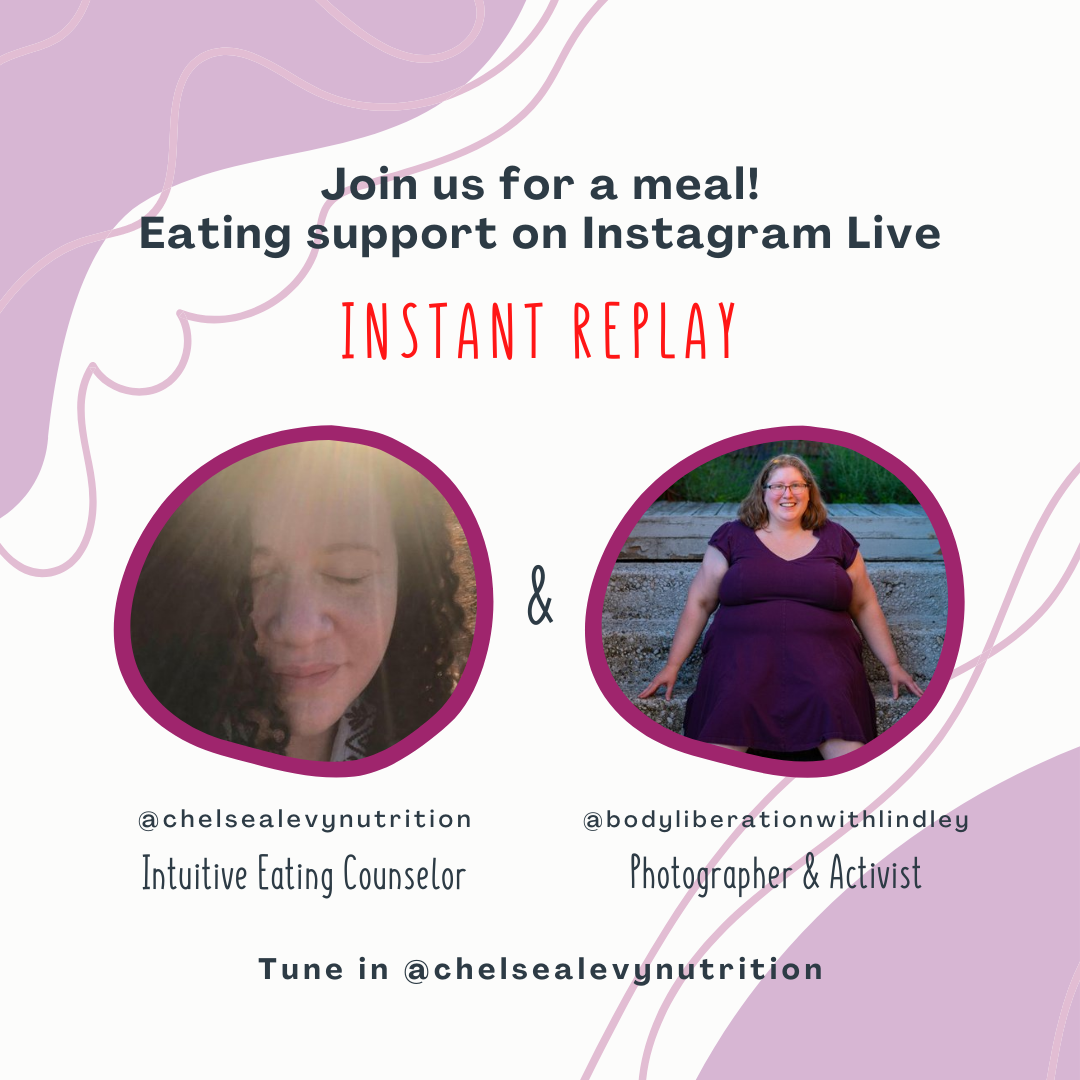
![Illustrated Art Stock: Plus Size Woman Covered with Flowers [Body Liberation Stock exclusive] - Body Liberation Photos & Stock](https://bodyliberationphotos.com/wp-content/uploads/2024/09/Illustrated-Art-Stock-Plus-Size-Woman-Covered-with-Flowers-Body-Liberation-Stock-exclusive-94337-600x600.jpg)
![Illustrated Art Stock: Plus Size Woman Twirls in a Skirt [Body Liberation Stock exclusive] - Body Liberation Photos & Stock](https://bodyliberationphotos.com/wp-content/uploads/2024/09/Illustrated-Art-Stock-Plus-Size-Woman-Twirls-in-a-Skirt-Body-Liberation-Stock-exclusive-94328-600x600.jpg)
![Illustrated Art Stock: Plus Size Woman Twirls in a Skirt [Body Liberation Stock exclusive] - Body Liberation Photos & Stock](https://bodyliberationphotos.com/wp-content/uploads/2024/09/Illustrated-Art-Stock-Plus-Size-Woman-Twirls-in-a-Skirt-Body-Liberation-Stock-exclusive-94323-600x600.jpg)
![Illustrated Art Stock: Plus Size Woman with Hands Over Breasts [Body Liberation Stock exclusive] - Body Liberation Photos & Stock](https://bodyliberationphotos.com/wp-content/uploads/2024/09/Illustrated-Art-Stock-Plus-Size-Woman-with-Hands-Over-Breasts-Body-Liberation-Stock-exclusive-94318-600x600.jpg)
![Illustrated Art Stock: Plus Size Woman with Hands Over Breasts [Body Liberation Stock exclusive] - Body Liberation Photos & Stock](https://bodyliberationphotos.com/wp-content/uploads/2024/09/Illustrated-Art-Stock-Plus-Size-Woman-with-Hands-Over-Breasts-Body-Liberation-Stock-exclusive-94313-600x600.jpg)
